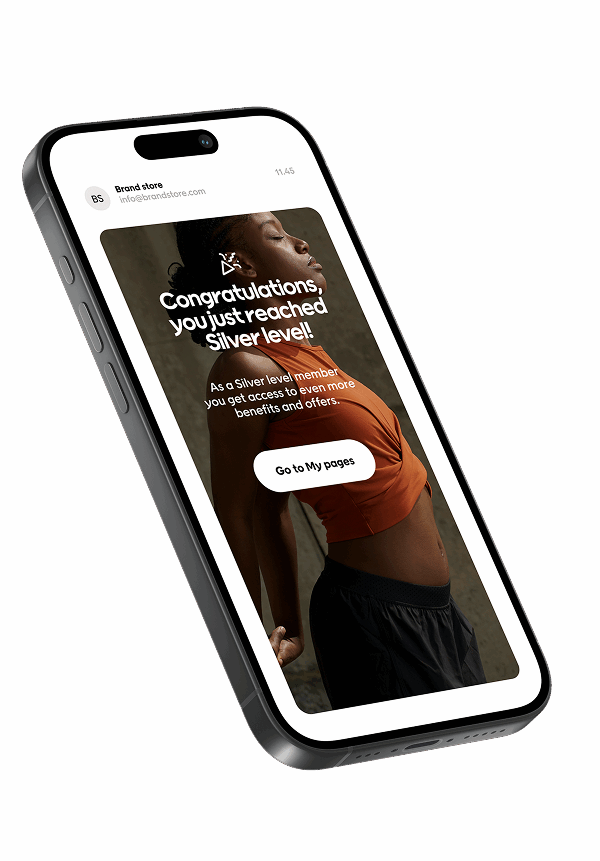As marketers – we all know that we should be A/B testing our communications and customer journeys. We have the tools available, but some obstacles and pitfalls hinder us.
Let’s look at what might be holding you back and what could help you overcome obstacles and avoid the common pitfalls.
Waiting to start until you have the perfect plan?
In the perfect world, you already have an ideal strategy and a plan for experiments and A/B tests across all your channels. You may even have a whole growth team dedicated to this. If you do, congratulations – you are already on a good roll, so keep up the fantastic job.
For some of us, sometimes it helps to lower the bar just a pinch, to take that one step to get started on the exciting journey of experiments and data-driven learning. Or to get back to experimenting by using smart tools such as AI to support us.
Tip: A great place to start is with your email campaigns, by A/B testing your subject lines and pre-headers to improve your opening rates.
There is a section further down on strategy and overall plans, with some helpful questions to get you to follow up if you want to do more.
Not knowing what an A/B test is
In short, an A/B test lets you try two different versions of something, randomized with your target audience, to see which version works best.
It is commonly used by marketing teams in ads, websites, and emails to understand which version works best with your target audience or drives better results.
Trying to change and test everything at once.
This is one of the biggest pitfalls of all and is common.
An A/B test works best if you test two small things against each other. If you change all the copy, the images, the wording, and the Call-to-Action options in one go, how will you know which of these changes impacted if someone clicked or not?
So, the advice is to keep each test simple and small – the secret sauce is often in the things you learn from a combination of many tests and experiments. The key is to start and then test, test, and test again.
Not knowing where to start.
It doesn’t have to be that hard. Here are four steps anyone can take:
Step 1: A/B test your subject lines for a better open rate
It is the perfect place to start today, primarily if you use a campaign management platform where A/B testing is part of the toolbox.
Step 2: Choose an email you will send with a big enough target audience to test
Commonly, a tool will split your audience into percentages so that:
- 20% receive version A
- 20 % receive version B
- The rest (60%) receive the winning email
The larger the target audience in the email, the statistically more reliable the results will be.
Step 3: Choose a variable to test
You will get the best results knowing the key difference between the two versions, whether it is wording, images, emojis, or colors that make the difference.
When you choose to test subject lines, many ways to write them can make a difference in whether your customer opens them. Here are some examples.
- Include a personalized field for name or no name
- Include discount or no discount communications
- Long or short
- Urgent or not urgent
With Voyado Engage, you don’t just have the built-in support to perform the split test technically. You have a smart AI-powered helper on what to write, too. Both inspirational and a smart time saver!

Step 4: Analyze your results and feed the new knowledge into your next test
A good idea is to share the knowledge you gained with your team so that you can learn together and share insights into how your target audience responds to different approaches now.
Not knowing what tools to use
The available tools will differ depending on the channel you focus on. Most marketing platforms have some built-in testing capabilities, and those are great places to start:
Channel: Ad campaigns on social media
Most social media platforms provide A/B testing capabilities on ads, where you can test different campaign tactics to acquire new visitors, customers, and members.
Channel: E-commerce site
Optimize an entire e-commerce site is a big task, and you often end up using a tool such as Kameleoon or Optimizely.
Pro tip:
Suppose you have a product discovery engine powering your search, navigation, and recommendation. Before you switch, it can support you in A/B testing changes to your underlying merchandising strategy. Ensuring you know if optimizing based on conversion, revenue, or profit will give the desired results.
Channel: Email and SMS
Most campaign management platforms provide basic A/B testing capabilities; make sure yours supports you and makes your process as smooth as possible.
Not having a strategy for growth experiments in marketing
Back to the goal of making experiments a part of your way of working and having a strategy underpinning this work. The strategy should tie in with your overall marketing strategy to help you improve the KPIs you are focusing on.
Start with your overall plan
When you want to take a step toward optimizing the performance of your communication, the first step is to look at
- What channels are we using?
- How is our marketing performing today?
- Who are our key target audiences?
- Where do we see opportunities for improvement?
Set priorities for the testing and experimentation
- Will you focus on all channels?
- Will you try to impact a specific demographic in your target audience?
- What seasonal shopping behaviors should you consider, that can impact your results?
- Who will be involved in your experimentation agenda?
- How will you share insights and takeaways?
- What do you believe that you can achieve by experimenting? Do you have a hypothesis?
- What goals do you have linked to the above?
Here at Voyado, we want to make your life as a retailer as easy as possible, looking at ways to let the tool do some of the heavy lifting for you.










